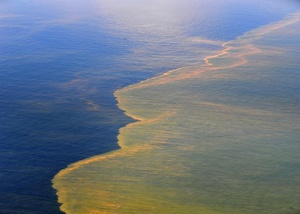In what Bellona’s president has called “a crime against environmental rights,” the massive civil lawsuit stemming from the 2010 Deepwater Horizon oil spill that was scheduled to open Monday in New Orleans has been postponed for one week to give oil giant BP and lawyers for more than 130,000 plaintiffs time to continue settlement talks.
If the talks are unsuccessful, the trial will open on Monday March 5.
The London-based oil giant BP will try over the next seven days to negotiate a blanket settlement of $14 billion, reported Bloomberg, with the plaintiffs, who range from fishermen to restaurateurs, and condominium owners to the US federal government.
Plaintiffs are currently seeking a settlement of at least $40 billion in a Federal Court in New Orleans.
The civil trial of BP and its partners on the Macondo well is universally regarded as one of the biggest and most complex legal proceedings in modern history. Some 72 million pages of documents alone have been submitted.
The April 20, 2010 explosion aboard the Deepwater Horizon oil rig killed 11 men and cause a gushing spill of 4.9 million barrels, the worst offshore oil spill ever in the US.
Judge postpones trial for ‘judicial expediency’
Judge Carl Barbier issued an order on Sunday afternoon putting off the start date of the non-jury trial until March 5, citing reasons of “judicial efficiency,” a spokesman for the court told Bellona Monday.
Judge Barbier, who has on his judicial docket the combination of some 530 cases, is said by legal observers in New Orleans to be anxious for a settlement, according to interviews conducted by Bellona.
Negotiations seem unlikely to produce accord
The postponement was announced in a joint statement Sunday from BP – which was in charge of the drilling project – and the group of some 420 plaintiffs’ attorneys known as the Plaintiffs’ Steering Committee, or PSC.
But the statement acknowledged that negotiations are far from seeing eye to eye.
“BP and the PSC are working to reach agreement to fairly compensate people and businesses affected by the Deepwater Horizon accident and oil spill,” the statement read.
“There can be no assurance that these discussions will lead to a settlement agreement. A further announcement will be made as appropriate,” it said.
Bellona wants the show to go on as planned
Bellona President Hauge – who has stated he is firmly against a settlement in the case because it would shield BP and other companies involved in the well blowout from having to confess their errors – attacked the postponement as “a crime against environmental rights – that is my opinion from a moral point of view.”
“So many people have been affected by the Deepwater Horizon spill that it is not an issue of money but rather an issue of violating people’s environmental rights if a settlement is reached,” said Hauge, who was present in Louisiana in the direct aftermath of the blowout, said Monday.
“It is the democratic right of the plaintiffs when something so wrong and so bad has happened that the case be heard in all of its detail in open court,” he said, adding “There is a lesson to be learned from the testimony – if the court case is not carried out, an opportunity for public enlightenment will be ignored.”
That settlement talks were ongoing was no surprise. BP’s new Chief Executive Officer Robert Dudley, who took over the beleaguered Tony Hayward’s position on February 7, said earlier this month that the company would like to settle “if we can do so on fair and reasonable terms.”
Pressure on BP to settle
Legal experts say there is tremendous pressure for BP to settle, not only with private plaintiffs but also with the federal government.
As part of the multi-faceted lawsuit, the Justice Department is seeking penalties under the Clean Water Act that could reach more than $17 billion if the judge in the non-jury trial decides that BP and its partners on the Macondo well, Halliburton and Transocean, acted with gross negligence in failing to properly prepare for and respond to a spill.
BP earlier had set up a $20 billion fund for out-of-court settlements, saying that it would enable victims of the oil spill to be compensated more quickly than they would be through the courts, Bloomberg reported.
Under the new plan being forwarded by BP during negotiations with plaintiffs in the coming week, the $14 billion remaining in that fund would be shifted to lawsuit plaintiffs, the news agency reported.
A deal between BP, its partners and the plaintiffs would resolve what is arguable the most complicated part of the proceedings.
But it would not resolve all legal issues: Aside from the US Federal Government, he state governments of Louisiana, Mississippi and Alabama are also pursuing claims – though only the Federal government is actively pursuing negotiations with BP to reach a deal over the costs of restoring the environmental damage done during the spill, the Guardian reported.
Even so, BP is in a legal battle with the other companies that were involved in the runaway well: Transocean, which owned the oil rig, and Halliburton, which cemented the well. Those legal brawls, over the share of the costs of covering those damages, could continue even after the claims have settled.




